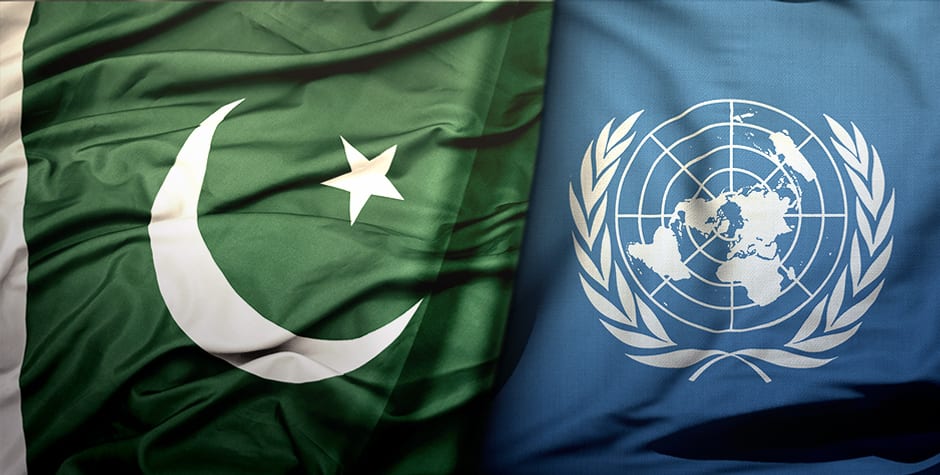Demanding World Leaders Take Action at the U.N. in Response to Increasing Persecution, Violence, and Execution Sentences of Christians in Pakistan
As part of our work at the United Nations, we have filed several reports with the Human Rights Council (HRC), highlighting human rights violations in Ethiopia, Myanmar, Pakistan, and India.
We raised concerns about increasing attacks on Christians in these countries. Our report on Pakistan focused on the recent attacks on Christians. As we informed you recently, over a dozen churches were burned down by an angry mob. On August 16, 2023, just one day after Christians, like other Pakistani citizens, celebrated Pakistan’s Independence Day (August 14), they were attacked by a mob of thousands of Muslims over an accusation of blasphemy.
By the time we were ready to file our report with the HRC, we received the updated numbers regarding the destruction. At least 20 churches and 80 Christian homes were vandalized and burned down.
We have also received updates that new accusations have been made against Christians for sharing a picture of the Quranic pages handed over by Muslims to the police as evidence of the desecration. In addition to the original blasphemy case filed against the two brothers accused of desecrating the Quran, at least one blasphemy case has been reportedly filed against another Christian for sharing pictures of the Quranic pages from the first case.
The second case is almost identical to the case of our client, Shahzad Masih, who told his Muslim co-worker that his father’s friend, a Muslim man named Ali, blasphemes. Yet a blasphemy case was filed against Shahzad and not against Ali.
Our report to the HRC again highlighted Shahzad’s case. He was only 16 years old when he was arrested in July 2017. In November 2022, a trial court sentenced Shahzad to death.
In another case, two Christians, Qaiser and Amoon Ayub, were sentenced to death for allegedly posting blasphemous material on the internet. During the trial, the evidence presented by the prosecution stated that the authorities reached out to the domain on which the blasphemous blog was available, but they never received any response as to who created the blog.
This shows the prosecution did not know who posted the blasphemous content. Both the trial court and the appellate court, however, erroneously concluded that, just because the Ayub brothers’ information appeared on the sacrilegious website, they must have created it. The Ayub brothers are waiting for the Supreme Court of Pakistan to hear their appeal, and we are directly involved in this case, representing Amoon.
These are the kinds of baseless allegations that enrage violent mobs in Pakistan. In 2009, a mob attacked a Christian neighborhood in Gojra, burned down hundreds of Christian homes, and killed eight people. In 2013, another mob attacked and burned down over 100 Christian homes in Joseph Colony, Lahore, after a local Christian was falsely accused of blasphemy. No one was ever punished for these acts of violence.
In the recent attack on August 16 mentioned above, several government officials, including Honorable Supreme Court Justice Qazi Faez Isa, visited the scene and made statements condemning the attack and promising justice. A police report has been filed against the mob, and over 100 people have been reportedly arrested. During a press conference, Hafiz Tahir Ashrafi, Chairman of the Pakistan Ulema Council, apologized to the Christian community on behalf of the country.
We can only hope that the government officials will keep their word this time and punish the perpetrators. Only a stern punishment according to the law will help prevent future attacks. Unless people are held accountable for their actions, they will continue to persecute innocent Christian minorities.
